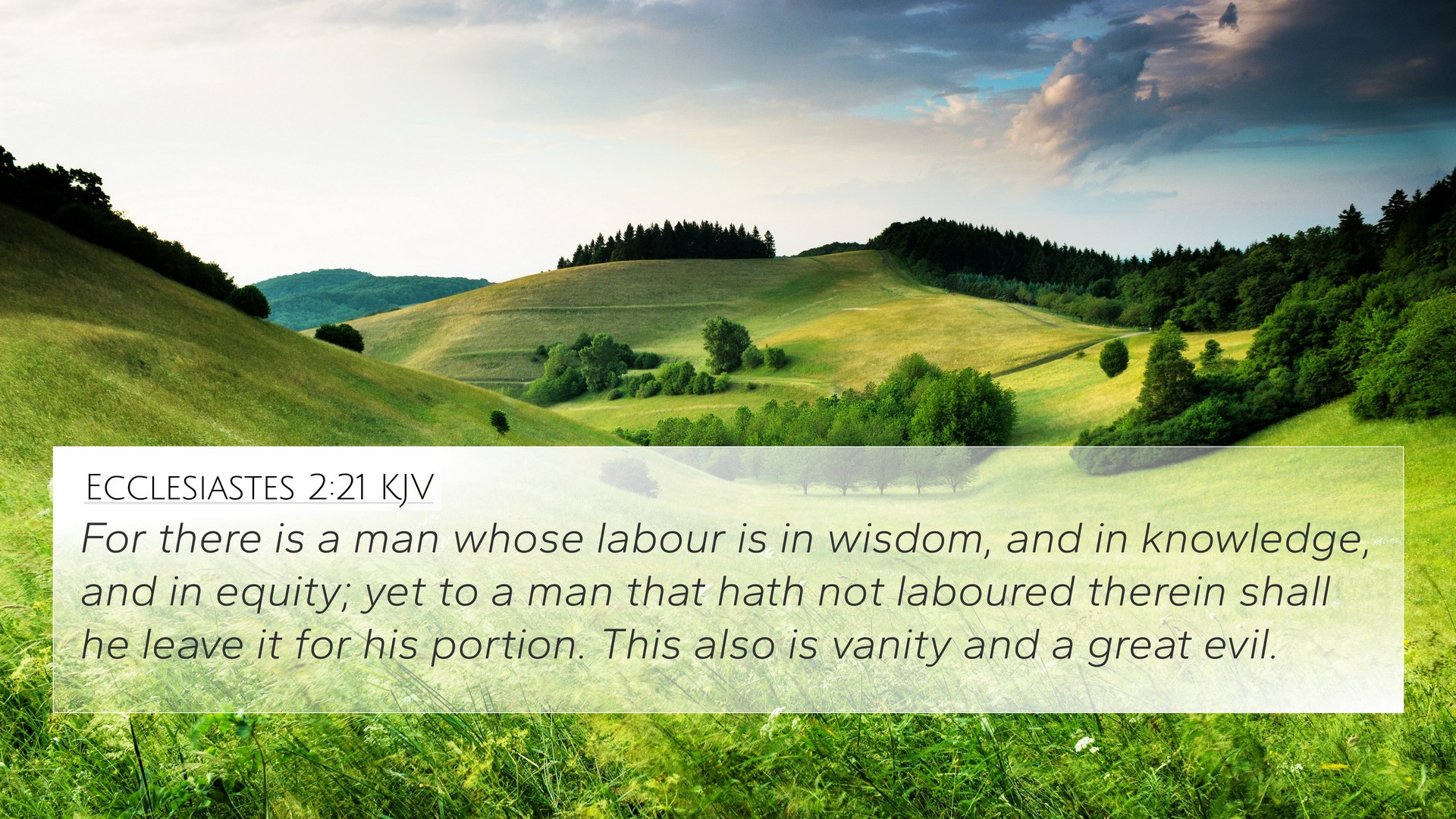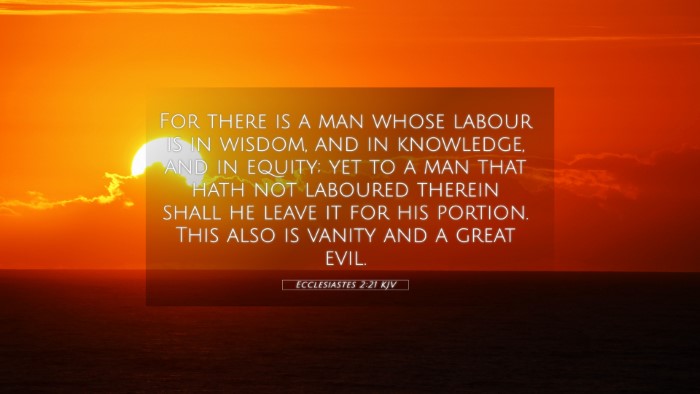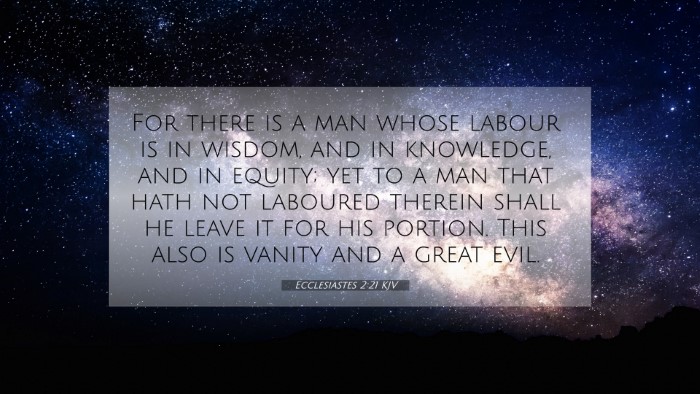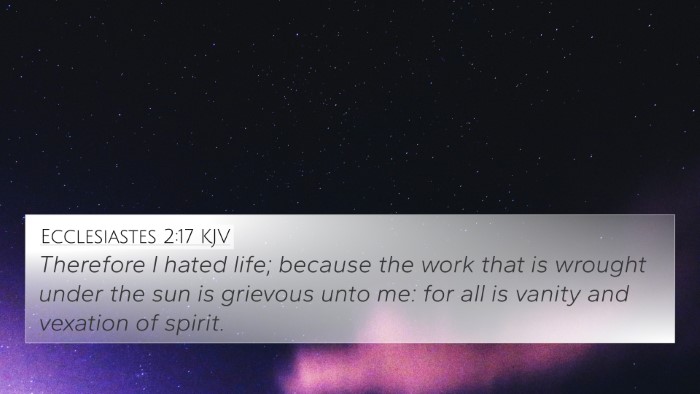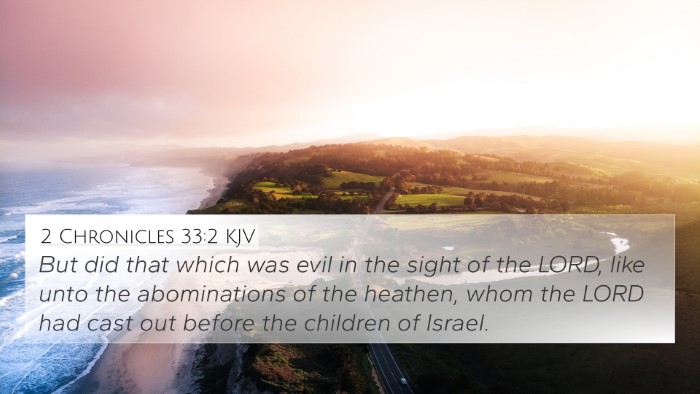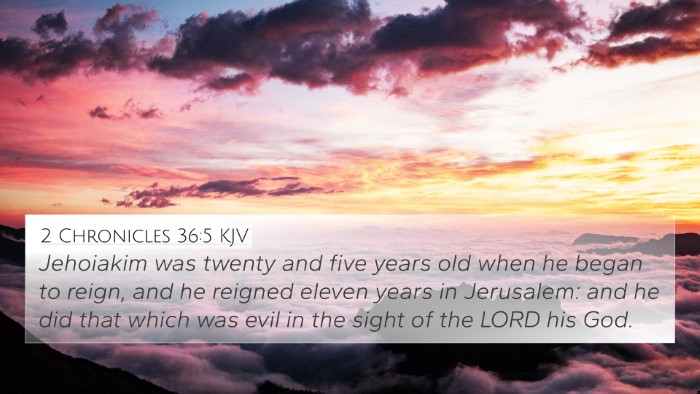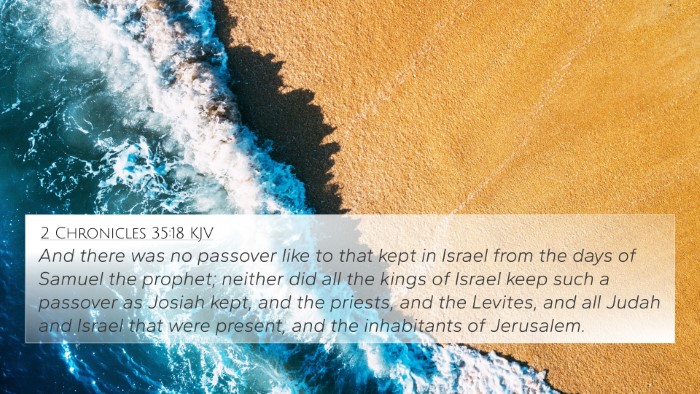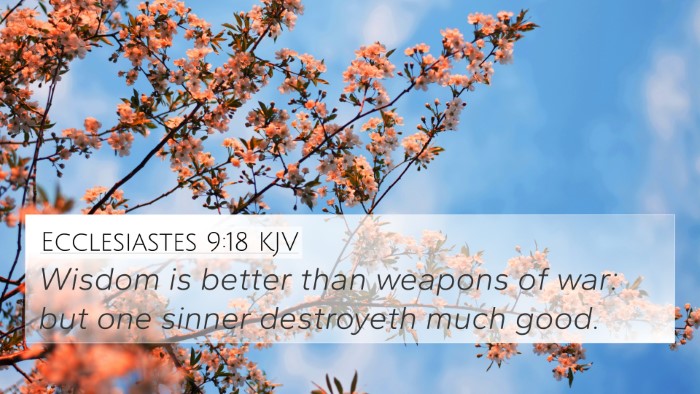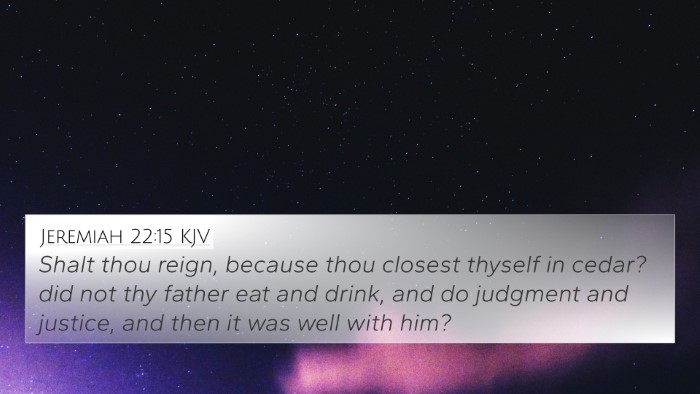Understanding Ecclesiastes 2:21
The verse Ecclesiastes 2:21 presents a profound reflection on the nature of human effort and the inevitability of loss. The writer, traditionally known as Solomon, contemplates the futility of labor when its fruits are inherited by those who did not work for them.
Verse Text
"For there is a man whose labor is with wisdom, and knowledge, and skill; yet to a man that hath not labored therein shall he leave it for his portion. This also is vanity and a great evil."
Meaning and Insights from Commentaries
This verse encapsulates several themes present in the book of Ecclesiastes: the transience of life, the futility of human effort, and the wisdom of recognizing one’s limitations. Below are insights from various public domain commentaries:
-
Matthew Henry:
Henry discusses how labor, despite being rewarding, often leads to disappointment when the results benefit others who did not contribute. He highlights the sense of injustice that arises when the toils of one individual are passed on to another, questioning the righteousness of such an outcome.
-
Albert Barnes:
Barnes emphasizes the duality of wisdom and folly in this verse. He notes that while the wise man toils with understanding, the rewards of his labor may completely evade him, leaving an inheritance to the fool. Such a reality points to the limitations of wisdom in securing a lasting legacy.
-
Adam Clarke:
Clarke reflects on the theme of vanity, identifying the feeling of emptiness that accompanies realizing one's hard work may come to nothing. He suggests that Solomon's observations serve as a reminder of the inherent unpredictability of life and the nature of wealth distribution.
Core Themes
The verse brings forth several key themes:
- Futility of Labor: The difficulty in reconciling hard work with the outcomes that don't directly benefit the laborer.
- The Nature of Inheritance: Questions about the justness of wealth being passed to the unworthy.
- Valuable Life Lessons: The importance of enjoying one's work despite its potential to be unappreciated by one's successors.
Cross-References for Ecclesiastes 2:21
To gain a richer understanding of this verse, consider the following cross-references:
- Proverbs 13:22: "A good man leaves an inheritance to his children’s children, but the wealth of the sinner is stored up for the righteous."
- Luke 12:20-21: The parable of the rich fool who stores up treasures for himself but is not rich toward God.
- 1 Timothy 6:7: "For we brought nothing into this world, and it is certain we can carry nothing out."
- Psalms 39:6: "Surely every man walks about like a shadow; surely they busy themselves in vain; he heaps up riches, and does not know who will gather them."
- Ecclesiastes 1:3: "What profit has a man from all his labor in which he toils under the sun?"
- Ecclesiastes 3:19: "For what happens to the sons of men also happens to animals; one thing befalls them: as one dies, so dies the other. Surely, they all have one breath; man has no advantage over animals, for all is vanity."
- Jeremiah 17:11: "As a partridge that broods but does not hatch, so is he who gets riches, but not by right; it will leave him in the midst of his days, and at his end he will be a fool."
Thematic Connections
This verse contributes to broader themes within Ecclesiastes regarding:
- The role of work and its value
- The temporary nature of wealth and possessions
- The unpredictability of life outcomes
Tools for Cross-Referencing
For deeper study, there are various tools available for cross-referencing, such as:
- Bible concordance
- Bible cross-reference guide
- Bible reference resources
Conclusion
In conclusion, Ecclesiastes 2:21 serves as a poignant reminder of life’s uncertainties and the fleeting nature of our efforts. The reflections of Solomon, through various interpretations, prompt believers to consider the fruits of their labor and the legacy they wish to leave behind, while encouraging a sense of enjoyment in the process of working.
